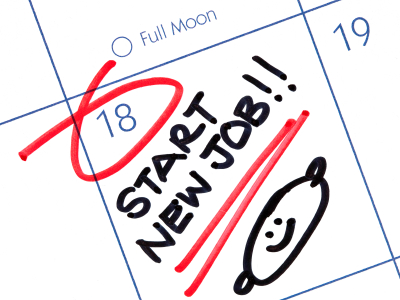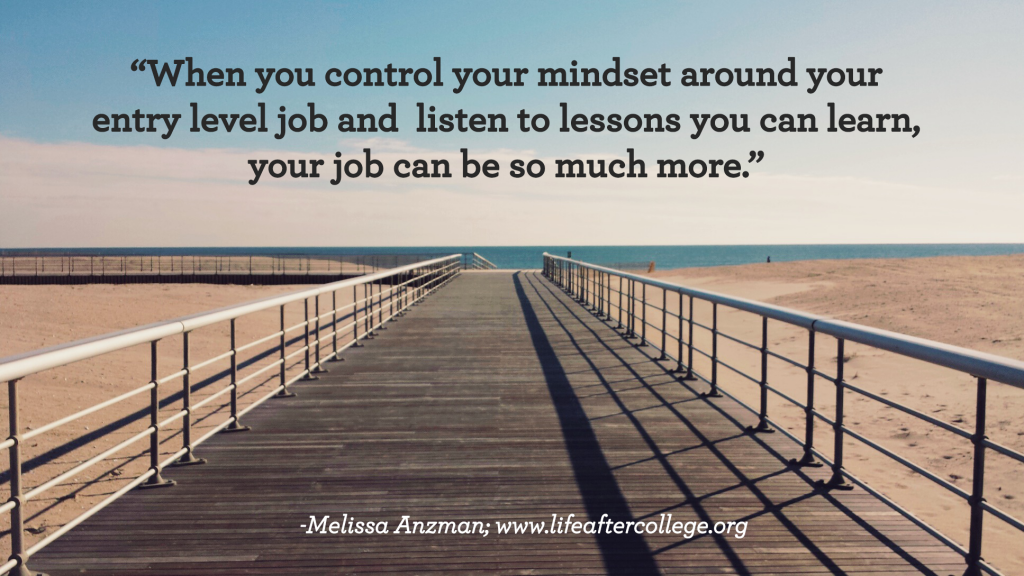Written by Melissa Anzman

There are so many new ways to interview these days, that having a Skype interview is most likely going to happen during your job hunt. I had my first one about four years ago and I remember being completely freaked out about the whole situation. Since then, I’ve had many Skype interviews and have been the one conducting them as well. Here are a few tips to help you ace your next one.
How to Ace Your Skype Interview
Do a test run.
Before every single interview, test your technology. I cannot stress this enough. Just because Skype worked perfectly yesterday, does not mean that it will be functional when you need it (speaking from experience here). And let's not forget that lately, Skype has been notorious for pushing out updates that take ages to populate on your machine.
Do a quick video chat with a friend about 20 minutes before your interview to test everything out, so you’re set to go before the interview - or at a minimum, do a test run with yourself to make sure you can a) open/access Skype; b) have a stable connection; c) nothing looks ridiculous in the background.
Keep your Skype name professional.
Same principles apply as using a ridiculous email address on your resume. Your user-name should be your name or some variation of it, to make it easy and professional. If you have to set-up a new “job interview/professional” account, do it – it’s simple and free.
I once interviewed a great candidate, who's Skype name was something like... "partyhardyo" - let's just say I was a bit skeptical when it came time to interview her.
Pay attention to your background setting.
Since we typically Skype with friends and family, our surroundings are usually not the main focus. But remember, just like a phone interview, this is an impression situation – you only have a few seconds to make the strongest impression via the screen, so make sure that you have planned everything.
You don’t need to redo your office to make it designer-ready, just be sure to remove any offensive materials behind you. Think: posters, post-it notes, clutter, and so on. Test what is seen through your webcam and make sure it looks decent and comes off as professional, clean and put together.
I'll give you a personal example here - I was going a video interview last year with our very own Paul Angone, and he started laughing when he could finally see me. In the place I was renting, there was a stuffed animal moose head on the wall above me - not really the look I was going for. Be sure you test those things as well - and take a screenshot if needed, so you are able to review everything the interviewer can see.
Professional on the top, party on the bottom.
Just like a mullet, your shirt (top) needs to be business professional clothes, but there can be a party in back (bottom). This is an INTERVIEW. Wear a top that you would wear to an in-person interview such as a suit coat, button-up, etc.
No one can see below your waist, so no need to go all out. It actually helps me calm down knowing that I’m wearing silly pajama pants with a blazer. Do not forget that this interview should be taken seriously and make sure your top-half is groomed accordingly.
And I can't believe I have to remind you, but please do your normal grooming routine - make sure your hair looks presentable. I was interviewing another candidate who was a front-runner for the role, but when we had our Skype interview, she looked like she just rolled out of bed (hair was in serious award-winning bed-head style). I know it isn't always fun or easy to get ready for a 30 minute call, but it will be well worth it.
Figure out where to look.
Skype is strange – it’s hard to figure out where you’re supposed to look on the screen. If you look at the person on your screen, you’re looking down to the person on the other side. That’s ok – the person on the other side is struggling with the same thing as well.
I would advise sitting a bit further away from the camera (if you can), so you can do a better job at looking at the camera and the person. If you need to choose one, I tend to vote for looking at the camera – it’s easier to make a connection on the other end, and is closest to eye contact in an in-person conversation.
And while we're talking about where to look, make sure you position your camera appropriately: you want it at least eye-level to you, but having the camera slightly higher than you - looking down, gives you a better angle. Alas, remember the lighting too - I always look like I'm in the witness protection program when I go with natural light in my home... make sure you don't do that too! If so, I've found that placing a bright light right in front of the camera so you're basically staring into it, sheds the best light and gets me out of shadow. Try a few different angles in your workspace too.
Remember there is a camera on.
I am sure you’ve all heard the funny and scary things that have been captured on a webcam when the owner forgot the camera was on. Don’t be one of those videos on YouTube. Please. Right before and right after the interview, people tend to forget that they are on candid camera and either say or do silly things, forgetting that someone is on the other line.
I’ve seen people fixing their hair, flossing, using the webcam like a mirror to make sure they are prettied up, commenting on how it went (or their opinion about the interviewer… ahem, me), and so on. Remember that the camera is on and someone is watching you. Wow, that just turned a bit Big Brother, but I think you know what I mean.
Final Thoughts
Overall, a Skype interview can really work in your favor. You’re able to get across so much more about who you are live via video versus a phone call. Be you, let your personality shine through, and remain calm at all costs. Part of the lore of doing Skype interviews for hiring managers, is that they are very uncomfortable.
I’m not going to lie – I think it’s super strange that you’re interviewing and seeing someone in their own personal space. It’s awkward and surreal at first – how you manage that, is exactly what they’re looking for.
Remember that they are trying to gauge the following from you: your skills, your personality, how you engage others under pressure, what your “space” looks and feels like, cultural fit with the manager and company, and your skills. Good luck and keep Skyping!
 About Melissa
About Melissa
Melissa Anzman is the creator of Launch Your Job where she equips ambitious leaders with practical ways to grow their career. She is the author of two books: How to Land a Job and Stop Hating Your Job. Follow her @MelissaAnzman.
















 Starting a new job or having a new boss is always intimidating. You’re walking into a new situation, somewhat blind with high expectations of what’s to come. Without even knowing about it, you rub your new boss the wrong way… and all because you stumbled over the “respect is earned, not given” guidance.
Starting a new job or having a new boss is always intimidating. You’re walking into a new situation, somewhat blind with high expectations of what’s to come. Without even knowing about it, you rub your new boss the wrong way… and all because you stumbled over the “respect is earned, not given” guidance. It was the last time I really thought about the choice I had made.
It was the last time I really thought about the choice I had made.
